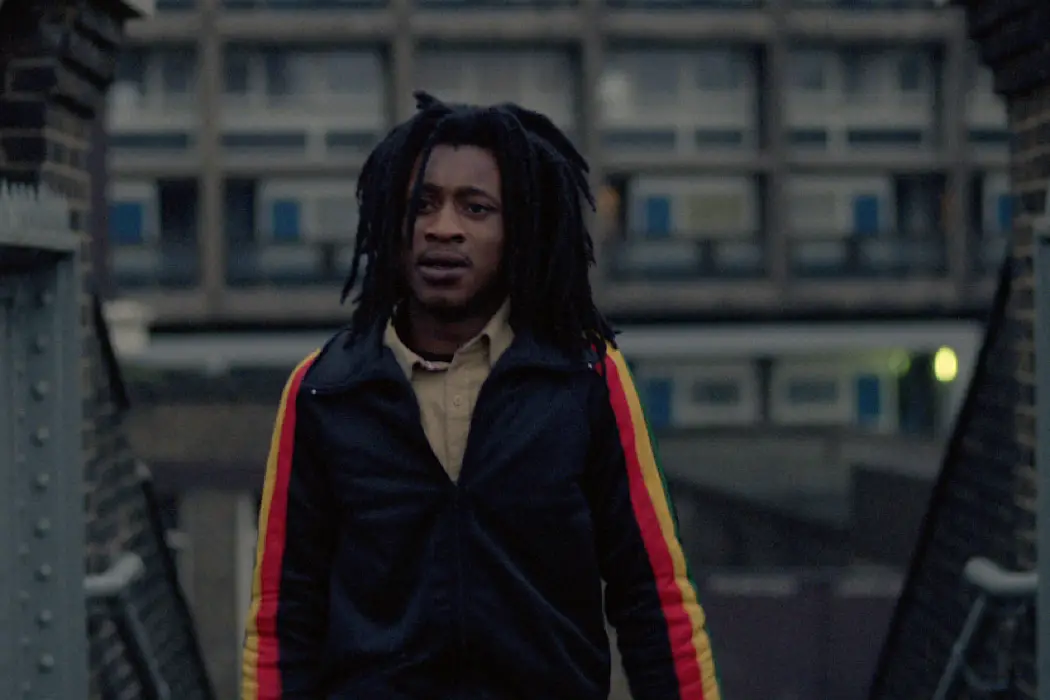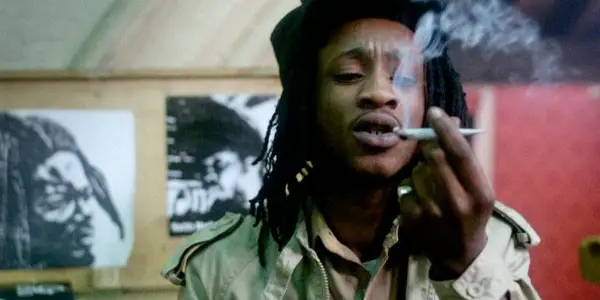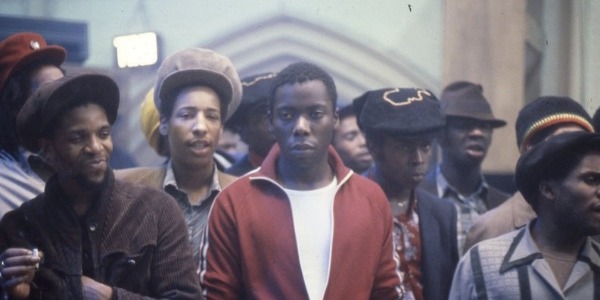BABYLON: A Hidden Gem

Holly is a final year film/journalism student currently living in…
Italian born, U.K. based director Franco Rosso’s film Babylon is a hidden gem when it comes to authentic explorations of institutional racism and the immigrant experience. Initially premiering at the 1980 Cannes Film Festival, it was deemed “controversial” and “likely to incite racial tension” at the New York Film Festival and consequently not distributed in the United States. Almost forty years later, in 2019, this British classic underwent a restoration and was briefly screened in selected cinemas.
The ugly truth
Set in the early 1980’s London, Babylon depicts the grim reality faced by British Jamaicans during the Thatcher years and the inexplicable poverty, unemployment, and cultural tensions that had engulfed the nation. The film follows aspiring reggae DJ Blue (Brinsley Forde) and his equally passionate sound system crew as they navigate the suffocating tribulations placed on them by a society reeking of blatant hatred and unrelenting racism. Rosso’s portrayal of London does not feature well-known landmarks and those quirky red telephone booths, instead, showing a gloomy city filled with industrial storage units, litter-strewn streets, and public housing blocks covered in graffiti.

By day Blue works as a mechanic in an auto shop, a job which he eventually loses after his boss taunts him with a racist slur that was, at the time, insidiously and frequently used. The bigotry Blue and his friends face are not limited to the general public; instances of police brutality and racial profiling add to the desperation and fear that bubbles below the surface and threatens to overflow as Blue is stalked and beaten by police. Though the group engage in instances of petty theft and sell stolen electronics to get by, Rosso’s goal is not to make moral judgements on the actions of the characters, but rather to criticise the entire system that has created the desperate situation that Blue and his friends now find themselves in – a cycle of violence that continues to exist some forty years later.
Rosso’s direction and Chris Menges’ cinematography allows for his characters to shine and breathe, giving them the time to let the dialogue and performances speak for themselves. Occasionally the camera will close in tight on a character, making sure every nuanced aspect and emotionality of the performance is captured. Music, specifically the underground dub reggae scene, serves as the backdrop of the film as Blue and his friends rush to attain the parts needed for their performance at a dance hall. In one particularly noteworthy scene, the group celebrates the acquisition of a new record at their private storage unit as the camera pans around them dancing freely and joyously, a scene brimming with a warmth which beautifully comments on the power of music in bringing people together.

This brief moment of blissful content quickly evaporates as a disgruntled neighbour knocks at the door complaining of noise and begins hurling racial slurs at the group – yet another reminder that the bigotry the group faces is relentless and inescapable. Ronnie (Karl Howman), the sole white friend in the group and unsurprisingly the laxest, attempts to handle the situation with humour and sarcasm. Whilst the majority of the group try to laugh off the woman’s attempts at insult, quick-tempered Beefy’s (Trevor Laird) visceral emotional reaction is one of deep pain and rage.
The conflict reaches a climax when their storage unit is vandalised and their music equipment destroyed in an act of racially charged violence that almost boils over as Beefy seeks to carry out revenge – stopped only by Blue and Ronnie who manage to restrain him. Here Rosso comments on perhaps the most twisted aspect of bigotry and hatred – the expectation that it should be tolerated, and any emotional response or thought of assertion should be subdued. These events become too much for Blue, who confronts the neighbour in the final ten minutes of the film, leading to some of the most powerful final five minutes of film-making in cinema.
Conclusion
Much like the supporting cast, Brinsley Forde’s performance as Blue is as understated as it is loud, supported wholeheartedly by naturalistic dialogue, a screenplay that flows seamlessly from scene to scene, and a soundtrack full of style. What is truly impressive about Babylon is not only how much it is saying, but how it is being said. Considering recent events and the ongoing role of systemic racism in modern society, it is clear that in the forty years since this film was made, not much has changed.
What do you think? How does the film hold up? Let us know in the comments below!
Babylon is currently streaming on MUBI.
Watch Babylon
Does content like this matter to you?
Become a Member and support film journalism. Unlock access to all of Film Inquiry`s great articles. Join a community of like-minded readers who are passionate about cinema - get access to our private members Network, give back to independent filmmakers, and more.
Holly is a final year film/journalism student currently living in Queensland, Australia. She is an all-around movie enthusiast, though currently her favourite directors include Wes Anderson, Martin McDonagh, and Alfonso Cuarón.













